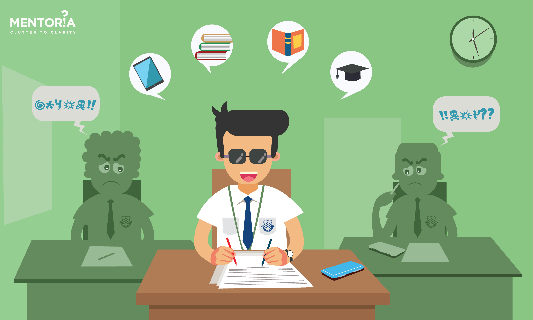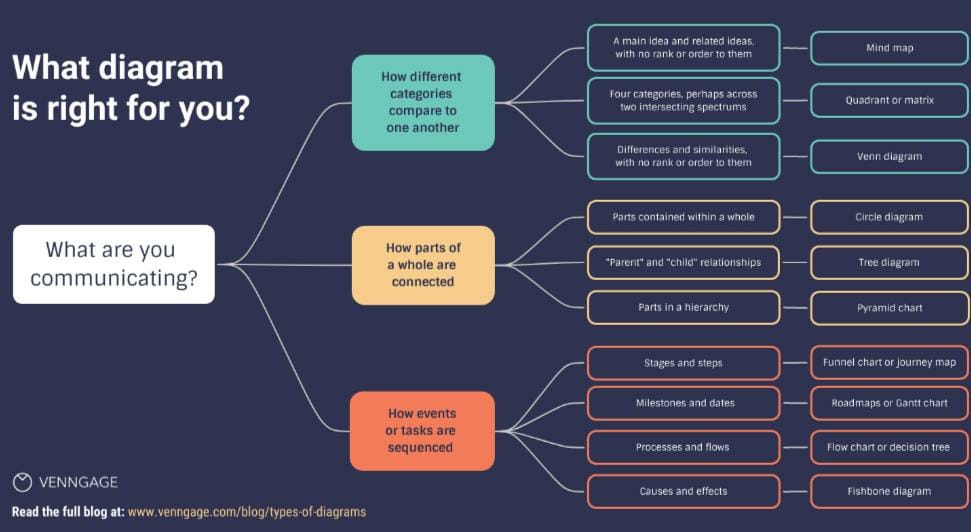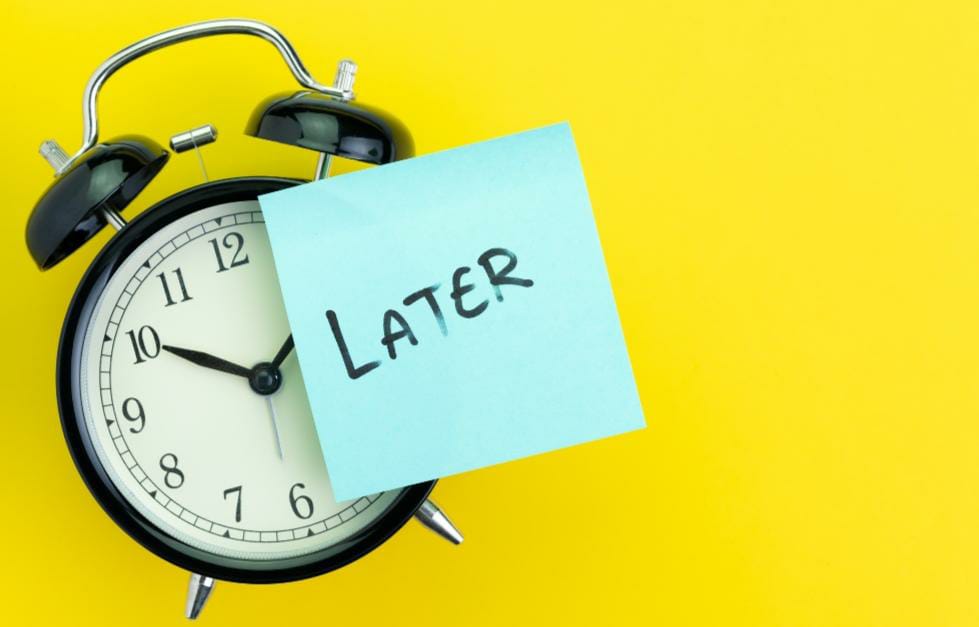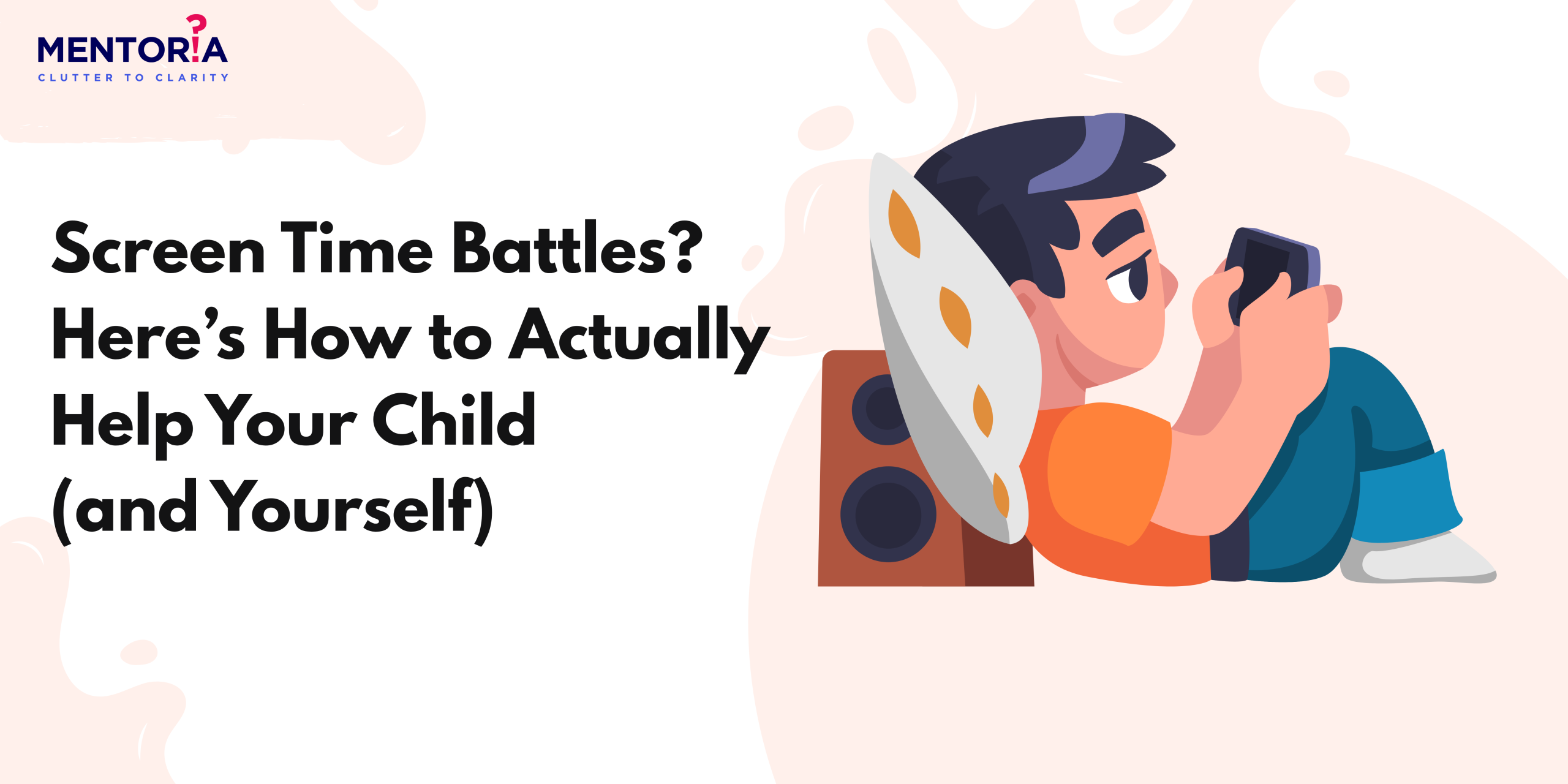10 Effective Study Tips for Students

Exams! A word guaranteed to trigger emotions. More often than not, these emotions are resentment and frustration. It wasn’t always like this though! Ancient warriors used to leap (with excitement, of course) at the mention of a test, although there’s involved combat.
What changed over the years? Well, History and English changed from revolutionary movements to “subjects” of interest. But, exams are held for a reason. They are a crucial step in the learning cycle. And learning is a skill you need to keep developing all your life, no matter what you end up choosing for a career.
As far as your annual exams are concerned, here are some quick tips, backed by scientific studies, that can help you study better.
Prepping for exams can be very stressful, but there’s one test you don’t need to prepare for at all – Mentoria’s holistic career assessment test! Mentoria helps you figure out which career best suits your personality, skills and interests so you can find your perfect fit!
Subjective Knowledge
Not every subject is the same (Phew!). Think of your house as a library. It would have three sections for arranging all your books; interpretational, memory and analytical. Biology, history and geography are memory subjects. Maths and physics are analytical subjects and languages are considered interpretational.
Organise your schedule the way you would organise anything else. Do it subject-wise. Instead of studying one subject for an entire day, manage your schedule so that you can devote time to each of the three categories every day.
Note It Down
Instead of poring over textbooks outside an exam hall, jot down the key points onto smaller cards and carry them along. Break the information into two parts; write the first half on one side and the rest on the other. While revising, read one side and guess what’s written on the another.
Mind-mapping is another useful trick to memorise a tough topic. Say you’re really bad at remembering names. You could connect the name to the person’s features, and make an instant connection the next time you see them. Apply the same logic to a tough subject. Connect it to something you already know or make up a story about it.

How can this help you with your exam preparations? Whenever you are learning something new, make a story about it. Link it to something fun. Assign a mnemonic (a pattern of letters, story or idea, which helps you remember something) to something you want to remember. Need a mnemonic to remember coordinating conjunctions in English? Go with FANBOYS = For, And, Nor, But, Or, Yet, So.
Test Yourself Before You Wreck Yourself
Who knew that the best way to prepare for a test is by putting yourself through more tests? After every round of revision, try to schedule a test. If you study using flashcards and tables, then the tests can be as simple as hiding one column and trying to recollect it by looking at the related column. Tests are a type of learning activity. They may allow you to see the information from a different angle. They also give you feedback that you can use to better your knowledge. To identify and rectify errors.
Bring Out Your Inner Teacher
This is a personally tried-and-tested technique. You remember 90% of what you learn when you teach someone else and 10% of what you read. This is one thing you should definitely take away from this article. Teach your friends, parents, siblings or even pets. Explain trigonometry to your pet dog or cat, and it’s bound to help you learn the topic better. It’ll also help you earn those extra Karmic points. Even if you fumble, don’t worry. Just open the book and revise those points.
Looking for some guidance yourself? Get in touch with our expert career counsellors here at Mentoria and kick-start your career discovery journey.
Take a Break
You’ve earned it! An ideal study session is supposed to last for 40 minutes. According to research, taking purposeful breaks from studying to recharge your brain and body boosts your energy, productivity, and capacity to focus. Take a 5- or 10-minute break between two sessions. Reward yourself. Walk, listen to music, dance, take a nap, raid the fridge, meditate or go for a short walk. Remember, the purpose of a break is defeated if you think about your studies. So make the most of your minutes to feel refreshed!
Don’t Fall Down the Myth-hole
From swallowing mouthfuls of dahi for good luck to sleeping with books under their pillows, people have tried and tested several hacks to ace the exams. Some are, naturally, too good to be true. We’ve picked out some of the popular ones and debunked the myths for you.
- “Music helps you study better.” *cue sad music* A study by Nick Perham shows that listening to music is merely a distraction for your brain, especially when lyrics come into the picture.
- “One spot to learn them all.” It’s a common belief that having a dedicated spot to study will train your brain to get ready to study as soon as you occupy that spot. However, one spot won’t do. If you are planning to do three rounds of revision, make sure that each round is at a different spot.
- “Study all night, perform better.” All-nighters are never a good idea. Your brain needs that resting time to do other important tasks, like converting your temporary memories to permanent ones. As PM Narendra Modi preaches in his book, Exam Warriors – Don’t go to sleep worried.
- “Highlight important points”. You’re better off writing them. By making notes, you READ, HEAR and WRITE the points.
Organise your Study Space
Make your study area perfect. Make sure you have enough space to spread your textbooks and notes out. Is there enough light in your room? Is your chair a good match for your body type? Do you keep your computer games hidden?

Remove any distractions and make yourself as comfortable as possible so that you can concentrate. For some, this may indicate total silence; for others, background music may be beneficial. Some of us require everything to be spotless and orderly in order to concentrate, while others thrive in a more chaotic environment. Take the time to figure out what works best for you and perfect it.
Consume Brain Foods
You might think you deserve a treat or that you don’t have time to cook, but what you eat has a significant impact on your energy levels and focus, so avoid junk food. Choose nutritious meals that have been shown to improve attention and memory, such as fish, almonds, seeds, yoghurt, and blueberries, to keep your body and brain well-fueled. Eating a good lunch before the test, focused on foods that will provide a slow release of energy throughout, is the same as eating a good meal before a study session.
Use Diagrams and Flow Charts

Diagrams and flow charts are one of the best visual aids to help grasp a topic thoroughly. When studying, visual aids can be really beneficial. Challenge yourself to write down what you already know about a topic at the beginning of the topic, and then identify where the gaps are. Carefully add your revision notes into one-page diagrams as the exam approaches. After you’ve written down your ideas in this structured manner, you’ll be able to swiftly recollect what you need to know throughout the exam. Diagrams and Flow Charts also help you understand topics where there is a process or relationship transfers.
Do not Procrastinate
The biggest enemy of a student is procrastination. A lot of students put it off until the last minute. While some students appear to thrive on cramming at the last minute, it is widely acknowledged that this is not the ideal strategy to study. Set up a timetable for your studies to help you manage your time. Make a list of how many examinations you have and when you have to take them. Then plan your research accordingly. You may decide to dedicate more study time to some examinations than others, so strike a comfortable balance. Know what works the best for you!

A word of caution: Don’t try to apply all the mentioned tricks at once. Take your time, train your brain. Now that you have these useful tips, bookmark this article and slay your way through those exams.
Best of luck!
Kick-start your career discovery journey with Mentoria & be sure to find the right career fit for you. Our 4-step career guidance solution, helps us find the right career fit for you from 3 streams, 850+ courses & 12,000+ careers.






